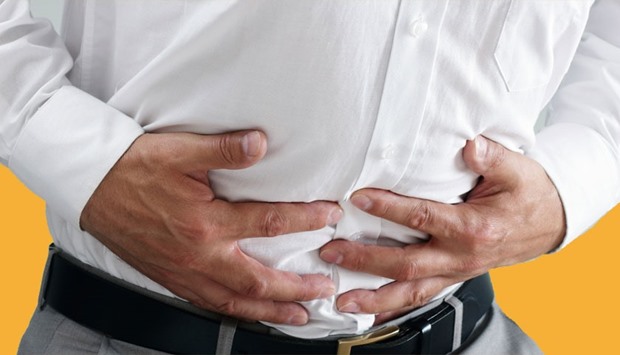Hamad Medical Corporation (HMC) has cautioned residents to safeguard themselves against bacterial infections and food-borne diseases throughout the summer by practising good food hygiene and avoiding eating contaminated food.
Food poisoning is one of the most common illnesses treated at the Emergency Department of Hamad General Hospital (HGH) during the summer months, said Dr. Galal Saleh Alessai, emergency physician and medical toxicologist, HGH. “Food poisoning is an acute illness that occurs when bacteria, viruses or other germs are absorbed by food substances consumed by people,” Dr. Alessai explained, adding, “Bacterial growth in food is likely to occur when food is not kept clean or cold enough.”
“Common symptoms and signs of food poisoning include nausea and vomiting, abdominal cramps or pain, diarrhea, fever, bloody stool, and in severe cases, shock and collapse,” Dr. Alessai noted.
Although anyone can be affected with the illness, certain groups of people are at an increased risk and should be extra cautious. “Elderly people, children under five years of age, people with a serious illness or disease such as diabetes, pregnant women, people with a compromised immune system, people who are taking medication such as steroids, antibiotics or antihistamines, or those who travel frequently are at a greater risk of contracting the illness,” Dr. Alessai highlighted.
More than 250 different diseases can cause food poisoning. Some of the most common diseases are infections caused by bacteria, such as Campylobacter, Salmonella, Shigella, Escherichia coli, Listeria, botulism and norovirus.
Joegi C. Ramos, HMC’s food hygiene supervisor stated that if certain food products are not handled properly, they could be considered to be at high-risk of food poisoning. “This includes raw food, ready-to-eat food exposed for significant amounts of time to higher room temperatures, all cooked meat and poultry, or any food that is rich in protein,” he said, adding: “Improperly stored cooked-chilled meals and stock, unpasteurised dairy products, mayonnaise, home-made ice-cream, and even hummus are also deemed to be at high risk of food poisoning.”
Ramos continued: “The most important thing is to cook food to be consumed on the same day. Cooking in advance, for instance for lunch or dinner parties the next day, is not advised, mainly because storing cooked food correctly is something that people often ignore. When storing food items in the refrigerator, make sure you place high-risk foods, including cooked meals on the top shelf, and place raw items toward the bottom to avoid cross-contamination.”
Improper defrosting is another important thing that people often overlook. “People at home tend to defrost frozen chicken in the kitchen sink under running water. It is important to check the temperature of the water, which should not be above 21 degrees celsius. It is highly advisable to use cold running water for this purpose. Also ensure your frozen item is not removed from its packing or cover. If it remains sealed, chances of any contamination are more easily avoided,” noted Ramos.
Ramos stressed that personal hygiene and good hygiene practices are of utmost importance to avoid any kind of contamination. “This is not just limited to hand washing but also includes making sure the person preparing food is well groomed and free from any sickness. Covering hair while cooking is highly encouraged as fallen hair in the food can also cause contamination,” he added.

Food poisoning is one of the most common illnesses treated at the Emergency Department of Hamad General Hospital (HGH) during the summer months.
